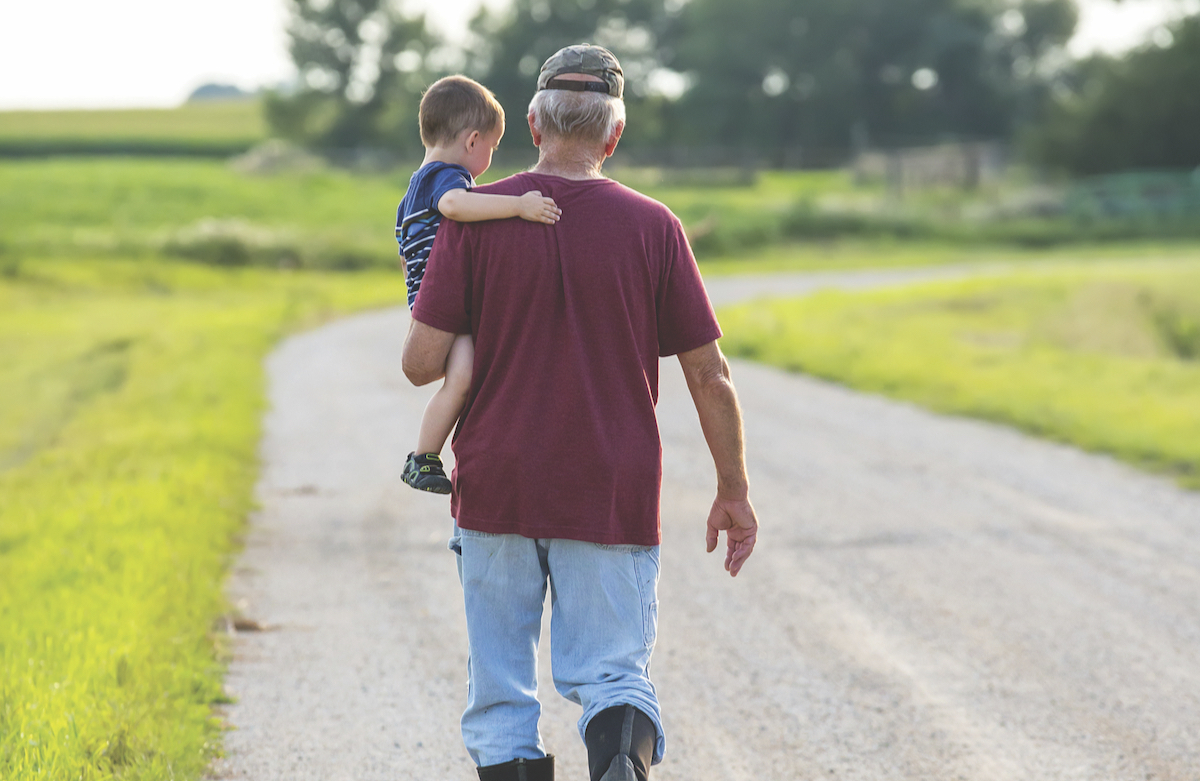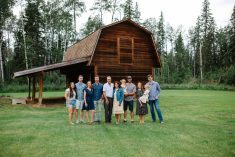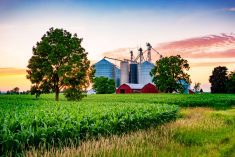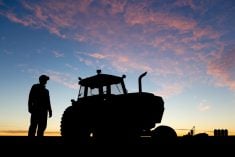For many farmers, being a farmer is part of their fundamental nature. It’s who they are and they can’t imagine a time when they won’t be a farmer. Who hasn’t heard a farmer say they want to die farming?
But the reality is that many farmers will need to exit the business whether they want to or not. Maybe for health reasons, to make room for the next generation, because they promised their spouse they would slow down, for financial considerations, or one of many other reasons.
Change is hard but avoidance is seldom a useful approach for managing a difficult situation, says Waterloo, Ont. registered psychotherapist Chad Bouma. “Someday we are all going to die. It’s a crappy reality to face but it’s as natural as the wind and the rain. Should we ignore that? No. We should make space for that to exist.”
Read Also

How scientists are using DNA and climate data to breed crops of the future
A method for forecasting how crops will perform in different environments so that plant breeders can quickly select the best parents for new, climate-resilient varieties.
Instead of having to react in a crisis, acknowledging your mortality puts you in the driver’s seat, explains Bouma. It’s much harder to cope when a situation is thrust upon you, when choice is taken away and your options are more limited, he says.

The good news is that each of us has been through many life transitions, and with some effort to plan to use the supports and resources available, the post-farming years can actually be looked forward to with anticipation.
Bouma notes that farms and farmers are unique so there isn’t a “one-size-fits-all” strategy when it comes to retirement and succession planning. Farms are getting bigger and more complex, so it’s helpful to have the language to describe what you’re experiencing. He says it’s also important for accountants, lawyers and other professionals assisting farmers to understand the emotional impacts of succession planning.
Burlington, Ont., grief and trauma therapist Selena Jones, who has farming roots in southwestern Ontario, knows how difficult it can be for farmers to transition out of farming. While retirement can initially bring relief, she has noticed the loss of routine leaves some people feeling anxious and listless, which can manifest as sleep difficulties, frustration, irritability and anger.
Jones focuses on helping her clients build mental resilience so they can look at their retirement from a place of curiosity rather than dread. Her advice is to embrace the full spectrum of emotions that retirement can bring, to address emotions head-on, which lays the foundation for a fulfilling and intentional retirement that reflects who you are and what you value most.
She recommends thinking about it early to build multiple generations of support so there’s some communication and planning all along about what’s happening next. “Pay attention to what sparks your interest but also what you know you don’t want to do. Think about what you liked to do when you were younger. Make note of what you’d like to explore when you have more time.”

Jones advises people to ask themselves what purpose excites them and what brings them fulfillment beyond work. “Is it being more involved in their community or have they been so involved that they need to take a step back? What do they need to feel like they are in equilibrium?”
Jones explains that there is a fine line between being active and being overscheduled. “We need to realize that rest is also restorative and good for our health.”
Sometimes people can get stuck doing the same old stuff, cautions Jones, who suggests being open to trying a new hobby or checking out a new group. “Have fun with it. It can open the door to something we had no idea we’d enjoy.”
Her advice: “Brainstorm, but don’t overthink it. Take a step back and ask what’s the next right thing, right now?”
When it’s feasible, retiring gradually can give people more flexibility and time to think about what they want to do and to cope with the shift in identity, she adds.
Jones also emphasizes the importance of social connection. “Social connectivity is incredibly vital. Studies have shown the benefits of social connection on our mental and physical well-being.”
She says working less can be an opportunity to spend more time with nieces, nephews and grandchildren or to nurture old friendships.
If needed, we can create our own social circles, continues Jones. She says the easiest way to expand your social circle is to join hobby groups with a common passion. “It’s easy to integrate into the group.”
She advises checking out your local library, community centres, community Facebook pages, or doing an internet search to find out about organizations or programs of interest in your region. If you don’t see a group, she suggests exploring what it would take to start one or ask others to join you for coffee or a walk at the same time each week.
Virtual communities, especially in rural areas, can also fill a need, says Jones. She notes that sometimes it can feel more comfortable to join an online community because it doesn’t require leaving home. However, she acknowledges it can be a little nerve-wracking if the technology is new. She encourages those who aren’t tech savvy to ask someone from a younger generation, a neighbour or a grandchild, to help.
Bouma, who has a therapy practice in rural Wellington County, has noticed that many farmers continue to nurture their love of farming through ag-related activities. Even if you are no longer actively farming, he says, you can still enjoy agricultural trade shows, farm tours, farm-related hobbies, and connecting with other retired farmers in your community.
Mentoring younger farmers is another way to stay involved in agriculture and it can also provide a sense of purpose in retirement, continues Bouma. “Mentoring acknowledges the value of the wealth of knowledge and experience that older farmers have. They can serve as sounding boards. It’s about listening and asking questions, not telling them what they need.”
Jones, who teaches a 12-week online course called Retire and Thrive, says redefining identity is a really big challenge. She’s met people who have been retired for 10 years or more who are still struggling to find a purpose. “We can’t always do it on our own. And we don’t have to,” she emphasizes.
Bouma agrees. He says that it can be helpful to access peer support by talking to those who have been through farm succession and retirement. And, increasingly, there are professional counsellors, trained in agricultural literacy to better understand the unique perspectives of farmers, who can help.
Being widowed is another hard transition, adds Jones. She warns that grief is unpredictable so you should go easy on yourself. “We are capable of hard things but if you are struggling, be sure to reach out to a mental health professional,” she says. “That’s their job.”
Jones knows it can be hard for people to ask for help, especially for men who are often less comfortable talking about their feelings, but she reminds people that others genuinely want to help. “But that requires that we each do our part by asking for what we need.”
Additional resources
- Art Your Service is an online community available by subscription where people can access arts and crafts lessons, fitness instruction, trivia competitions, guest lectures, and more, in real time and recorded sessions.
- Retire and Thrive is a 12-week online course developed by grief and trauma therapist Selena Jones featuring weekly coaching calls and other supports to help people build resiliency in retirement.
- A list of ag-informed counsellors and therapists is available on the Do More Agriculture Foundation website.
















